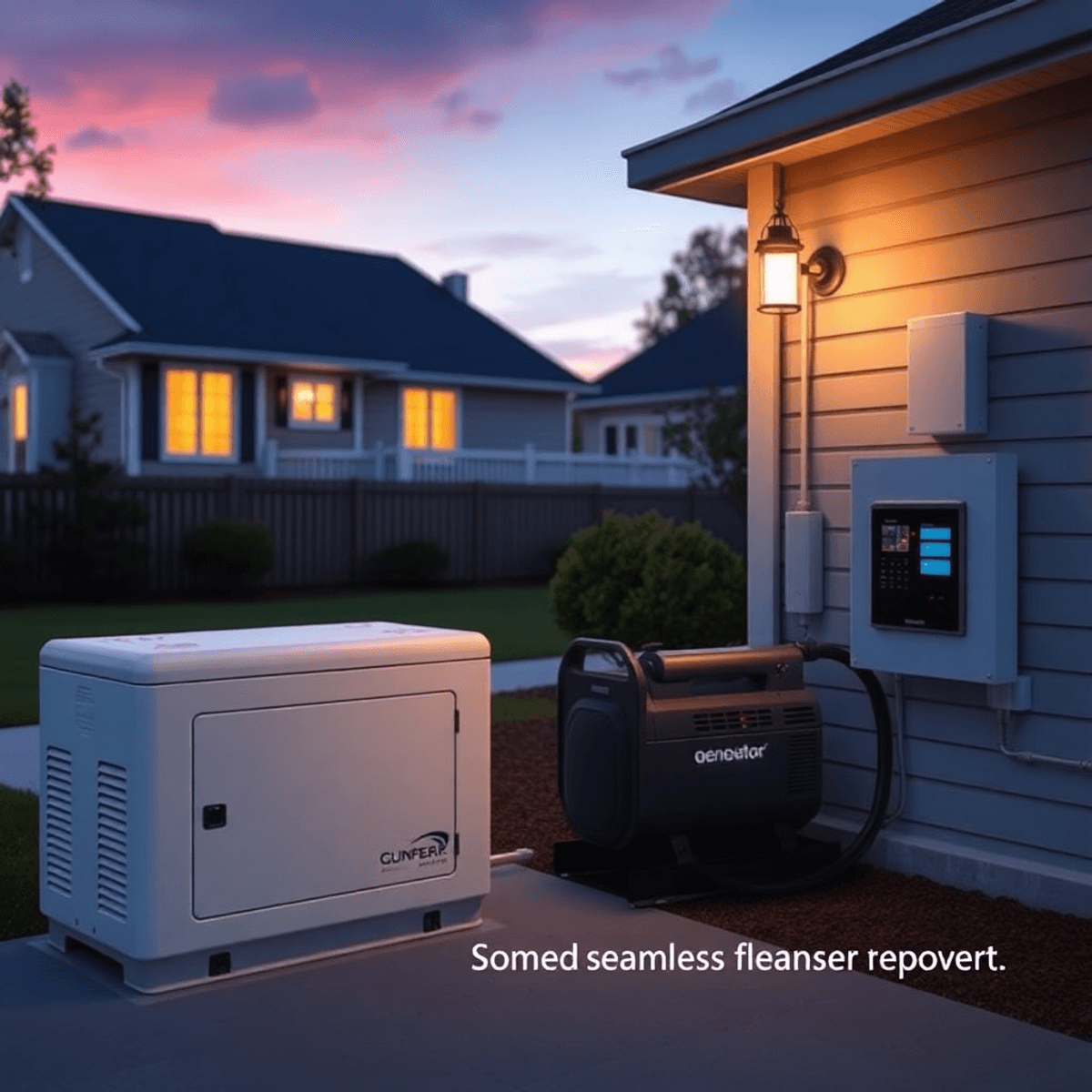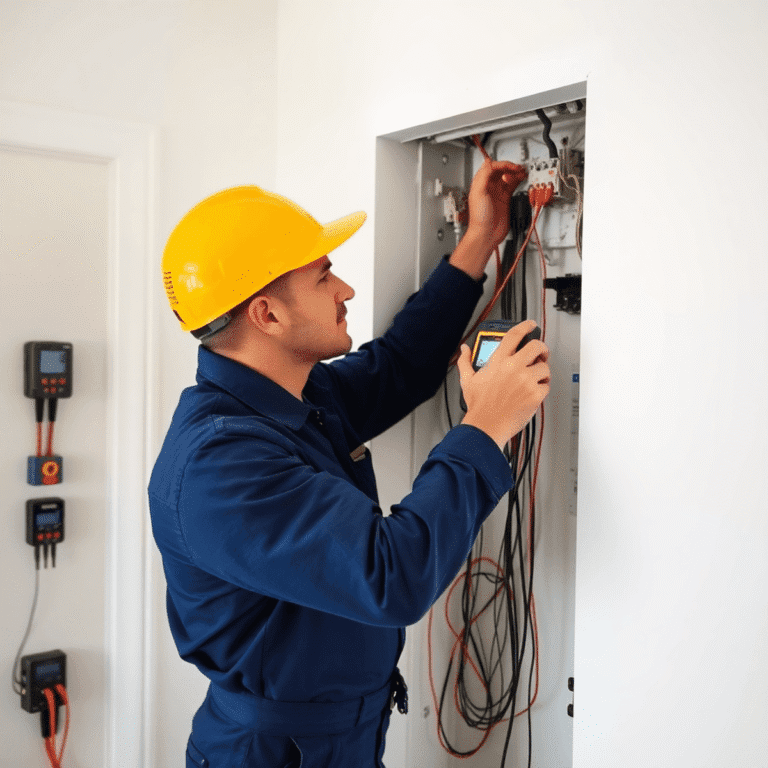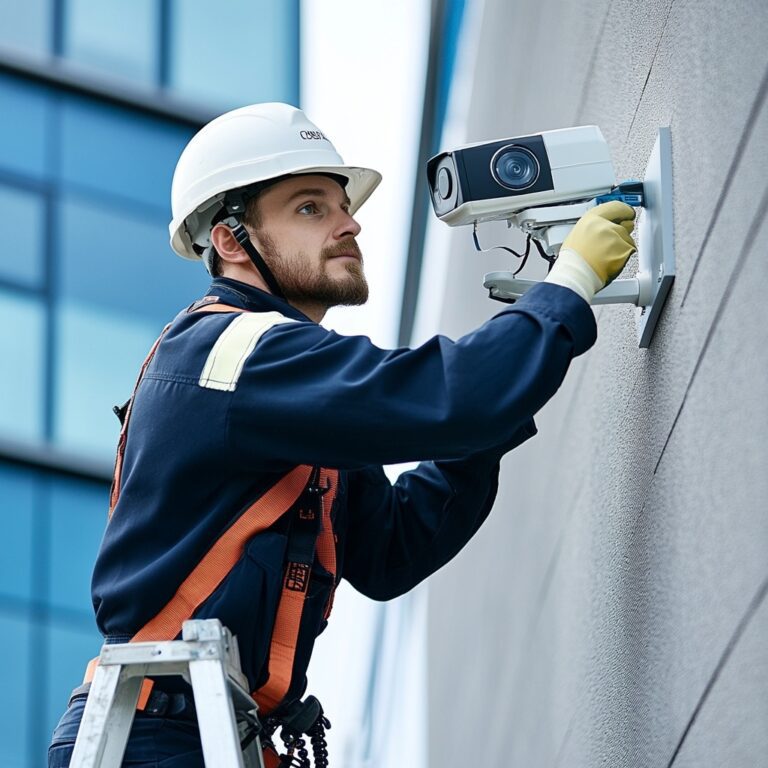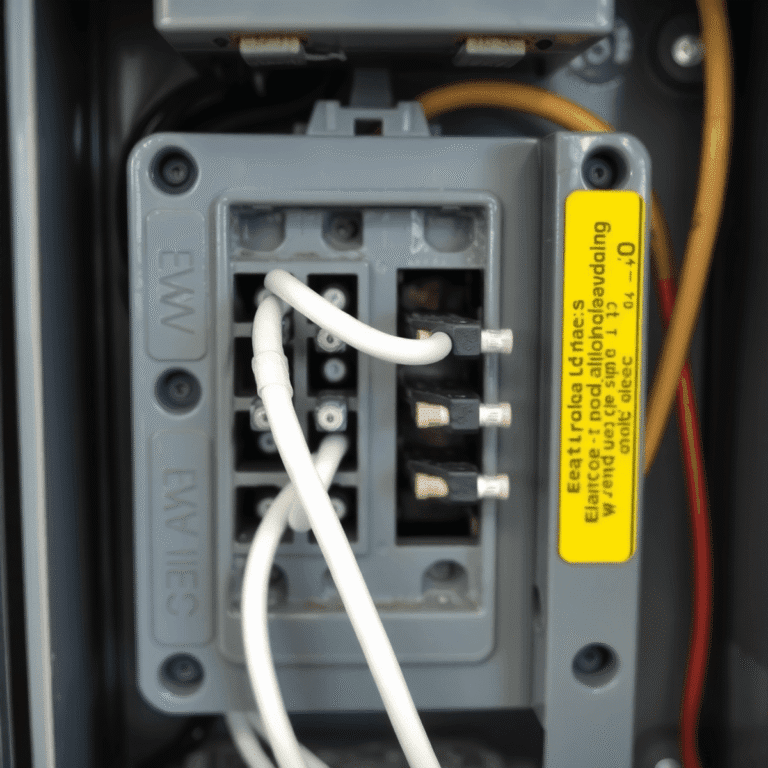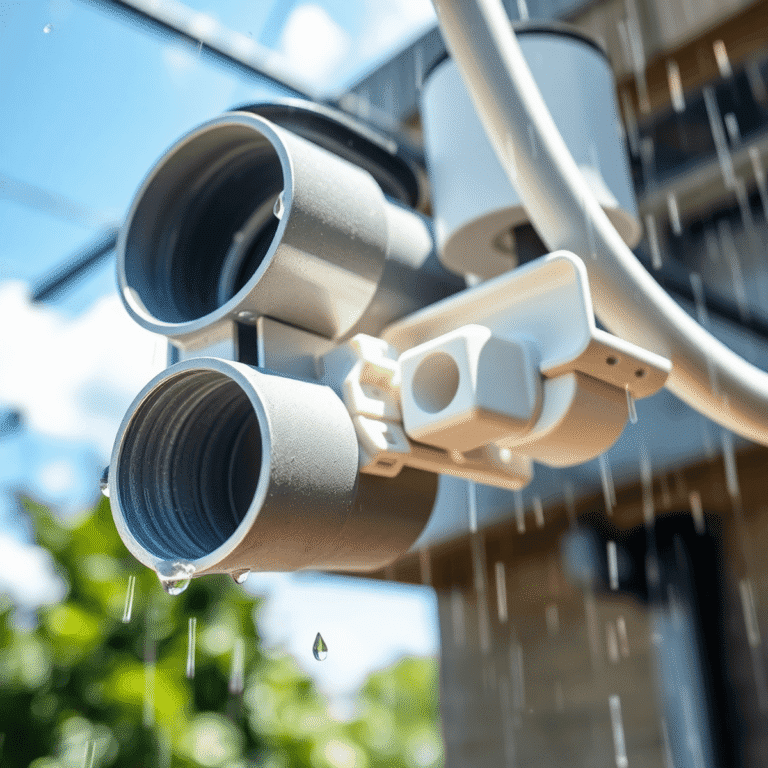How Backup Generators Automatically Start During an Outage
Backup generators are essential for maintaining power supply during unexpected outages. These systems provide a reliable source of electricity, ensuring that homes and businesses can continue to operate without disruption.
Automatic start during power outages is a critical feature of modern backup generators. It ensures that the generator kicks in immediately when a power loss is detected, preventing downtime and potential damage to sensitive equipment.
The benefits of seamless power transfer include:
- Continuous operations: No interruption to business activities or household functions.
- Protection of equipment: Avoids damage to electrical devices caused by sudden power loss.
- Safety assurance: Maintains operation of safety systems such as alarms and emergency lighting.
Understanding how backup generators automatically start during an outage can help you appreciate their value and ensure you choose the right system for your needs. If you’re considering investing in a backup generator, contact us for expert advice and assistance.
1. Understanding the Role of the Automatic Transfer Switch (ATS)
The Automatic Transfer Switch (ATS) is a crucial part of how backup generators work. Its main job is to keep an eye on the power supply from the utility company and switch to the generator automatically when it detects a power outage. This ensures that there is minimal interruption to your electricity supply.
2. How the ATS Detects Power Loss
The ATS constantly checks the flow of electricity coming from the utility. When it notices that there is a power loss, usually within a few seconds, it sets off a series of actions to start up the backup generator. This quick detection helps reduce any downtime and makes sure that important systems stay running.
3. Starting Up the Generator
Once the ATS detects that there is no power, it sends a signal to the generator to start up. This involves:
- Activating the fuel supply system
- Engaging the engine starter motor
- Initiating ignition sequences
For most generators, this start-up process happens almost instantly, ensuring a smooth transition from utility power to generator power.
4. Warm-Up Time for Some Generators
Some backup generators need a short warm-up period before they can handle their full load capacity. This time allows the engine to reach its ideal operating temperature and guarantees smooth performance when taking over the electrical load. Usually, this warm-up period lasts only a few seconds to a minute, depending on the model and type of generator.
5. Switching Power from Utility to Generator
After the generator is ready to go, the ATS then shifts the electrical load from the utility to the generator. This transfer is designed to be seamless, preventing any major interruption in your power supply. The system makes sure that all connected devices and systems continue working without any noticeable disruption.
6. How Long Does It Take for All This?
The whole process, from when the ATS notices a power loss to when it switches over to the generator, usually takes less than a minute. Modern ATS systems are built for efficiency and dependability, making sure that your backup power solution kicks in quickly and effectively during an outage.
Understanding how these systems work helps explain why it’s so important to invest in high-quality components like an ATS and keep them well-maintained for reliable backup power solutions.
Importance of Backup Generators During Power Outages
Ensuring Continuous Power Supply During Outages
Power outages can disrupt daily operations and cause significant inconvenience. Backup generators provide a reliable solution by ensuring a continuous power supply during these interruptions. This is particularly crucial for critical operations that cannot afford downtime, such as hospitals, data centers, and emergency services.
Protecting Equipment and Data Integrity
Unplanned power outages can lead to data loss and equipment damage. Backup generators play a vital role in protecting sensitive equipment and maintaining data integrity. By providing an uninterrupted power source, they help prevent the risk of data corruption or hardware malfunctions that could result in costly repairs or loss of valuable information.
Safeguarding Safety Systems Functionality
Safety systems such as fire alarms, security systems, and emergency lighting rely on a steady power supply to function effectively. In the event of an outage, backup generators ensure these safety systems remain operational, thereby safeguarding the well-being of individuals and property.
Meeting Regulatory Requirements in Sensitive Industries
Certain industries are subject to stringent regulatory requirements regarding uninterrupted power supply. For example:
- Healthcare facilities: Need continuous power for life-saving equipment.
- Financial institutions: Require operational continuity to protect customer transactions and data.
- Manufacturing plants: Depend on stable power for machinery and quality control processes.
Backup generators help these industries meet compliance standards by providing a dependable secondary power source during outages.
The presence of backup generators in both residential and commercial settings is paramount for maintaining operational efficiency, protecting assets, and ensuring safety during unexpected power disruptions.
Factors Influencing Backup Generator Operation Time During Outages
Backup generator operation time during outages depends on several key variables. The type and model of generator directly influence how long a backup system can sustain power. For instance, portable generators typically offer shorter runtimes compared to standby models. Larger, commercial-grade generators, often powered by diesel or natural gas, are designed for prolonged use and can support entire buildings for extended periods when paired with sufficient fuel reserves.
The load requirements also play a critical role in effective power supply during outages. Generators must be sized to meet the essential loads identified within a property—whether it’s life-safety systems in an industrial facility or refrigeration and lighting in a residential home. If a generator is undersized relative to the demand, it will either fail to supply adequate power or shut down prematurely due to overload protection mechanisms.
Several other factors come into play:
- Generator Fuel Source: Diesel, propane, and natural gas impact runtime based on fuel availability and storage.
- Automatic Start Capabilities: How backup generators automatically start during an outage depends on fast detection of power loss and the ATS’s ability to respond quickly, affecting how rapidly full load support is restored.
- Maintenance Status: Well-maintained units operate more efficiently for longer durations.
Thorough assessment of both generator specifications and property load profiles ensures reliable performance when power interruptions occur.
The Importance of ATS Quality and Maintenance for Smooth Power Transfers During Outages
The quality of the Automatic Transfer Switch (ATS) is crucial for ensuring that backup generators work effectively during power outages. A top-notch ATS can quickly detect when the main power supply goes out and start up the generator without any delays, minimizing the chances of losing power. Reliable ATS units have advanced sensors, sturdy relays, and fast-acting switching mechanisms that allow for almost instantaneous switching between utility power and backup power.
Why Maintenance Matters
While having a well-built ATS is important, regular maintenance is equally essential for consistent performance. Even the best ATS units can encounter problems if they are not properly maintained. Issues such as dust accumulation, worn-out electrical contacts, or outdated firmware can cause delays or even failures in the transfer process. To ensure that all components function as intended during an outage, it is crucial to have certified electricians conduct regular inspections.
The Approach Taken by Protek Electrical and Data
Protek Electrical and Data understands the significance of installing high-quality ATS systems and providing ongoing maintenance. This strategy ensures that critical systems—such as security alarms, emergency lighting, or data servers—experience no noticeable disruption when switching between power sources. By offering top-notch ATS solutions supported by professional maintenance, Protek Electrical and Data provides peace of mind for both residential and commercial properties.
Regular Maintenance: Ensuring Optimal Performance During Power Outages With Backup Generators
Regular maintenance is essential for keeping backup generators reliable and efficient during power outages. By taking care of your generator, you can ensure that it will always be ready to seamlessly switch on when the power goes out.
Key aspects of regular maintenance include:
- Routine Inspections: Regular visual checks for any signs of wear, corrosion, or damage.
- Fuel System Maintenance: Ensuring fuel quality and quantity are adequate, checking for leaks and clogs.
- Battery Check: Verifying battery charge and condition to guarantee the generator starts promptly.
- Oil and Coolant Levels: Monitoring and topping off essential fluids to prevent overheating and mechanical failures.
- Load Bank Testing: Simulating full load conditions to ensure the generator can handle actual power demands during an outage.
The impact of maintenance status on backup generator performance during outages cannot be overstated. Neglect can lead to unexpected failures, longer downtime, and costly repairs. Regular maintenance not only extends the lifespan of your equipment but also ensures optimal performance when you need it most.
Applications of Backup Generators in Residential and Commercial Settings During Power Outages
Backup generators play a crucial role in both residential and commercial settings during power outages. These devices ensure that homes and businesses continue to operate smoothly, even when the main power supply is disrupted.
Homes
For residential properties, backup generators offer several benefits:
- Uninterrupted Power Supply: Essential for maintaining comfort and safety by keeping heating, cooling, and lighting systems operational.
- Protection of Appliances: Prevents damage to sensitive electronics like computers, televisions, and refrigerators.
- Medical Needs: Critical for households with medical equipment that requires constant power.
In homes, the automatic start function of backup generators ensures minimal disruption. When an outage occurs, the Automatic Transfer Switch (ATS) detects the power loss and triggers the generator to start within seconds.
Businesses
Commercial settings benefit significantly from backup generators:
- Operational Continuity: Ensures critical business functions such as data centers, security systems, and communication networks remain active.
- Data Integrity: Protects against data loss by providing continuous power to servers and IT infrastructure.
- Customer Service: Maintains seamless operations which is vital for customer-facing services like retail stores and restaurants.
For businesses, the automatic start capability is essential. The ATS quickly switches the power source from utility to generator, ensuring a smooth transition without interrupting business activities. This feature is particularly valuable for industries where even a brief power interruption can lead to significant losses or safety concerns.
Backup generators are indispensable for both homes and businesses during outages, offering reliability and peace of mind through their automatic start functionality.
Conclusion
Backup generators offer reliability and peace of mind by providing uninterrupted power supply during outages. The Automatic Transfer Switch (ATS) enables the automatic start feature, which smoothly switches power from the utility to the generator. This seamless process is vital for protecting equipment, preserving data integrity, and ensuring the safety of systems.
Investing in a top-notch backup generator and scheduling regular maintenance ensures peak performance when it matters most.
Knowing how backup generators automatically start during an outage emphasizes their importance in both homes and businesses, establishing them as a crucial element of any effective power management plan.
FAQs (Frequently Asked Questions)
What is the role of an Automatic Transfer Switch (ATS) in backup generators during power outages?
The Automatic Transfer Switch (ATS) detects power loss from the utility and initiates the start-up process of the backup generator. It ensures a seamless transfer of power from the utility to the generator, enabling continuous electricity supply during outages.
Why is automatic start important for backup generators during power outages?
Automatic start allows backup generators to begin operating immediately when a power outage occurs, ensuring uninterrupted power supply. This seamless transition protects critical equipment, maintains safety systems, and supports continuous operations without manual intervention.
How do factors like generator type and load requirements influence backup generator operation time?
The type and model of a generator affect its fuel capacity and efficiency, which in turn influence how long it can operate during an outage. Additionally, the load requirements—meaning the amount of power needed—determine how quickly fuel is consumed, impacting overall operation duration.
What impact does ATS quality and maintenance have on the performance of backup generators?
High-quality ATS units are essential for seamless power transfer during outages. Regular maintenance ensures that both the ATS and backup generator operate optimally, reducing the risk of transfer failures and ensuring reliable automatic start-up when needed.
In what settings are backup generators commonly used to maintain power during outages?
Backup generators are widely used in both residential homes and commercial businesses. They provide peace of mind by ensuring continuous power supply to protect equipment, maintain critical operations, and uphold safety standards during outages.
How does regular maintenance contribute to backup generator reliability during power outages?
Regular maintenance keeps backup generators and their components in optimal condition, preventing unexpected failures. Proper upkeep ensures that automatic start mechanisms function correctly, fuel systems are clean, and all parts are ready to perform reliably when a power outage occurs.

